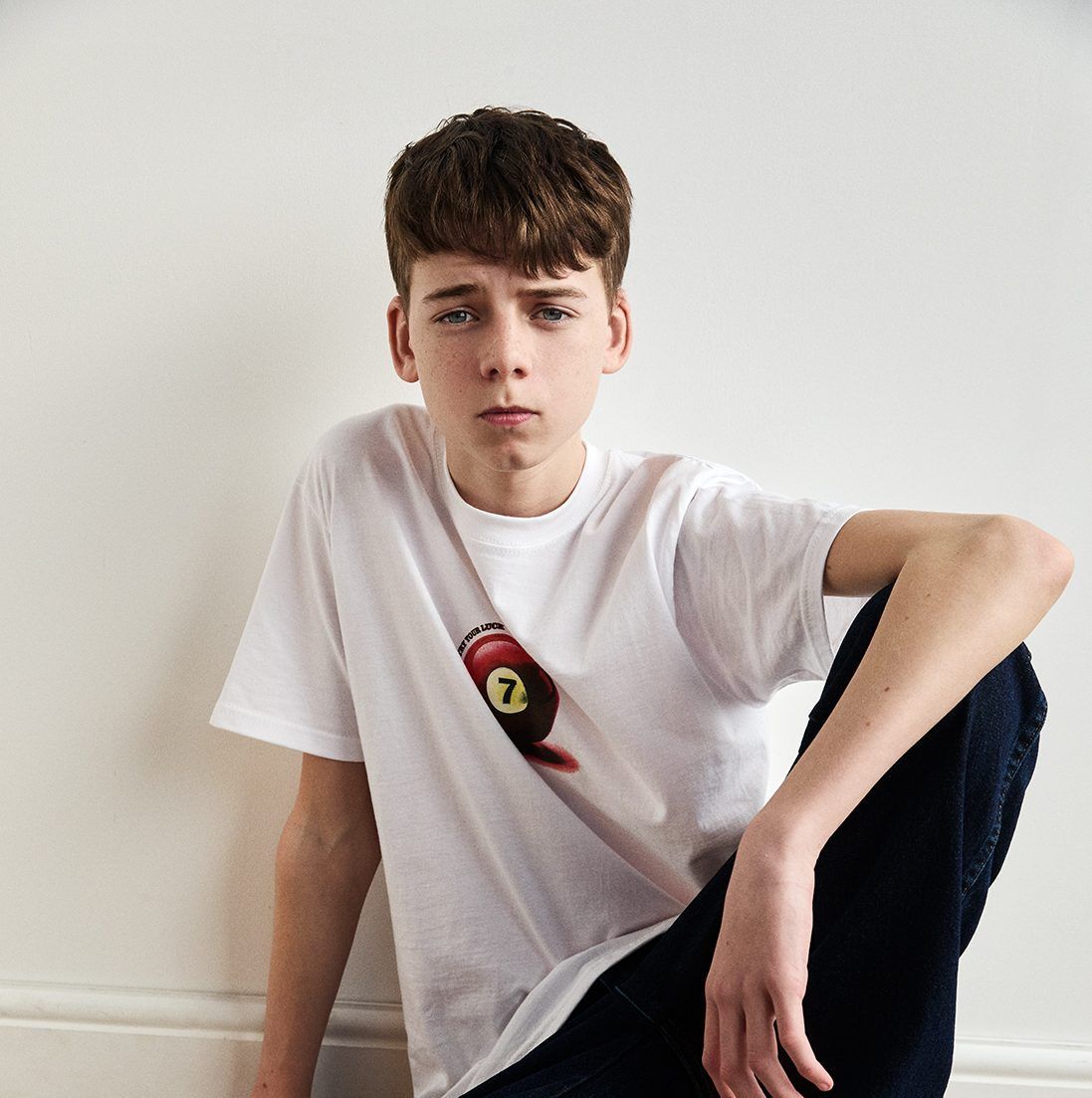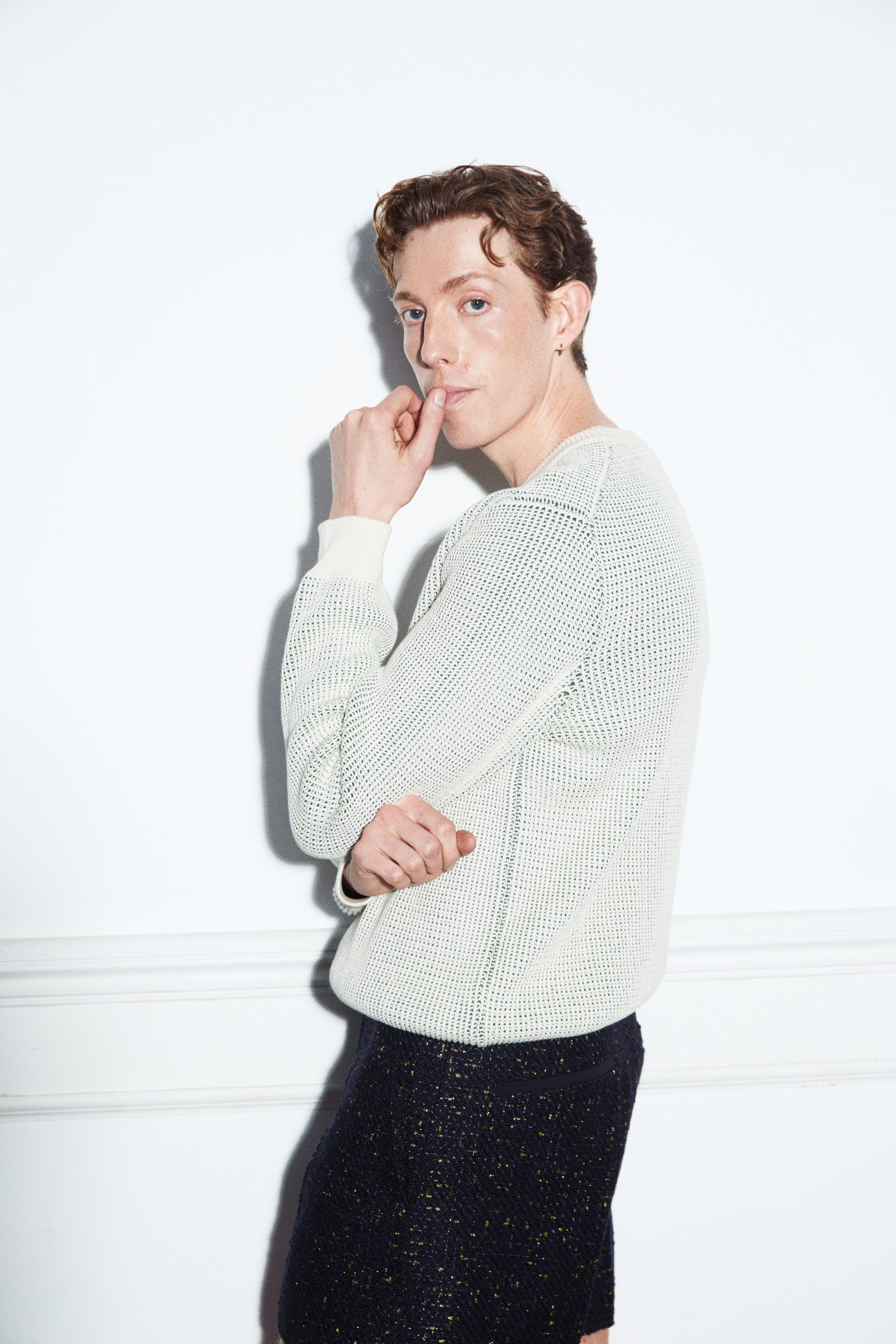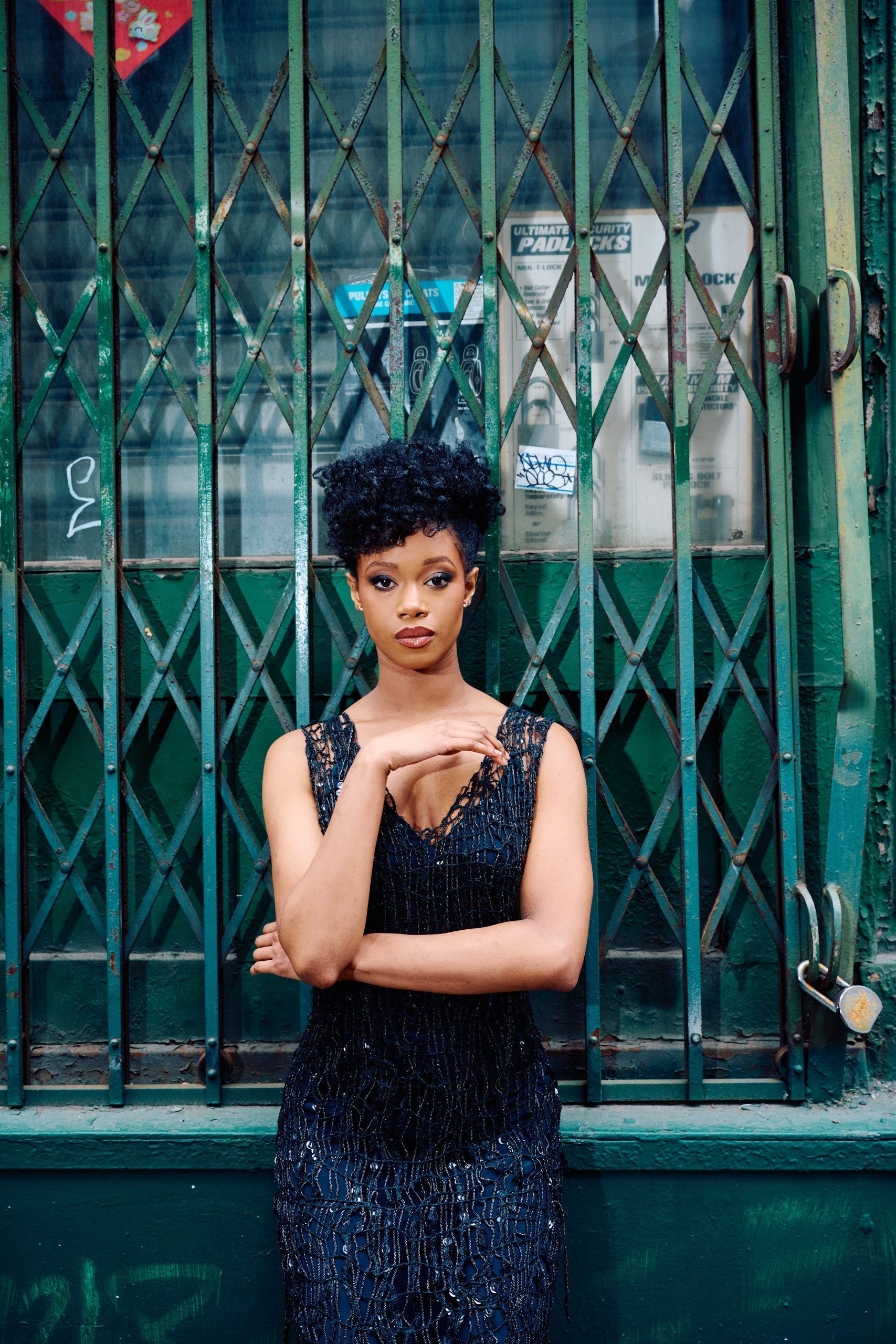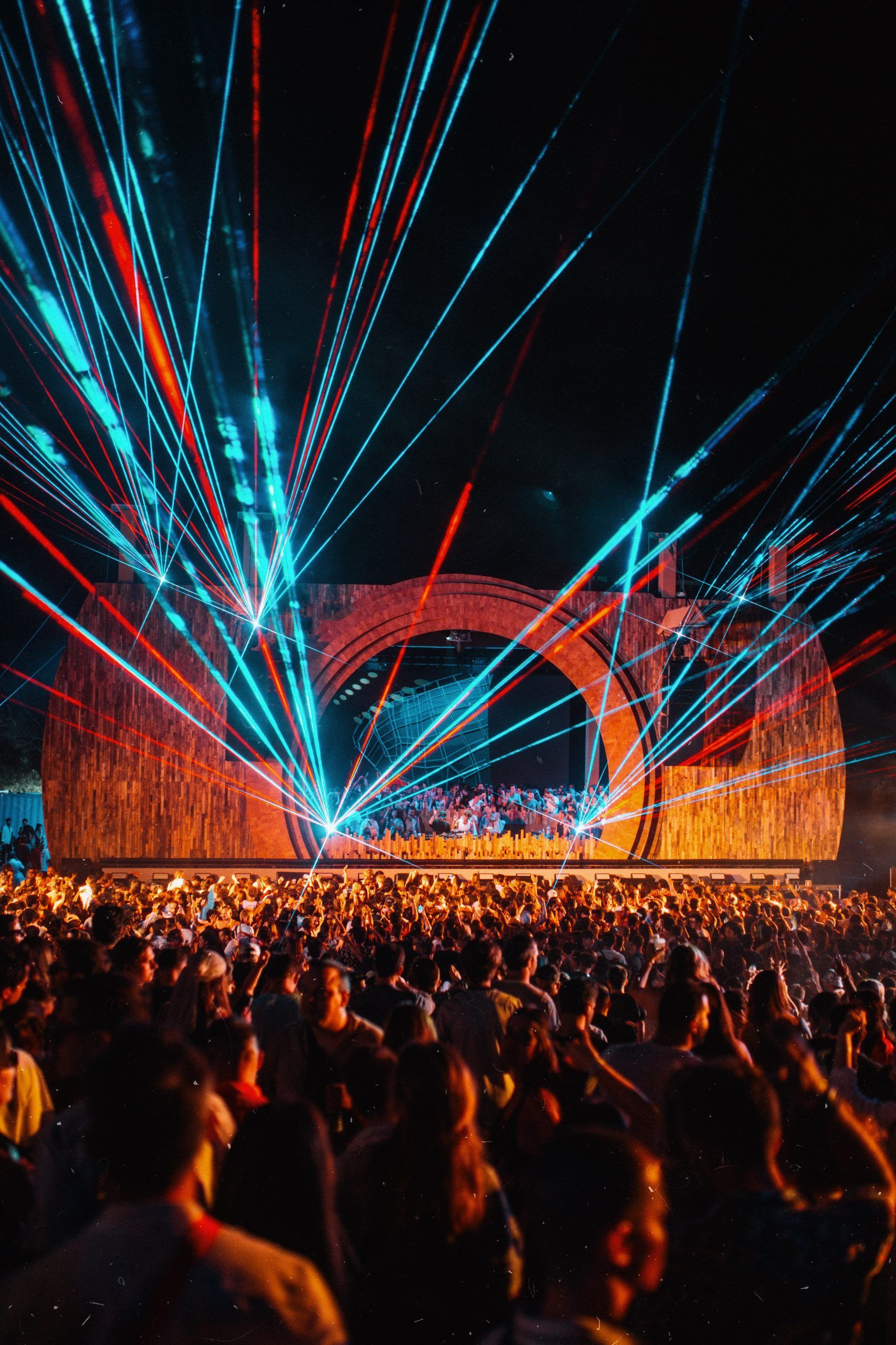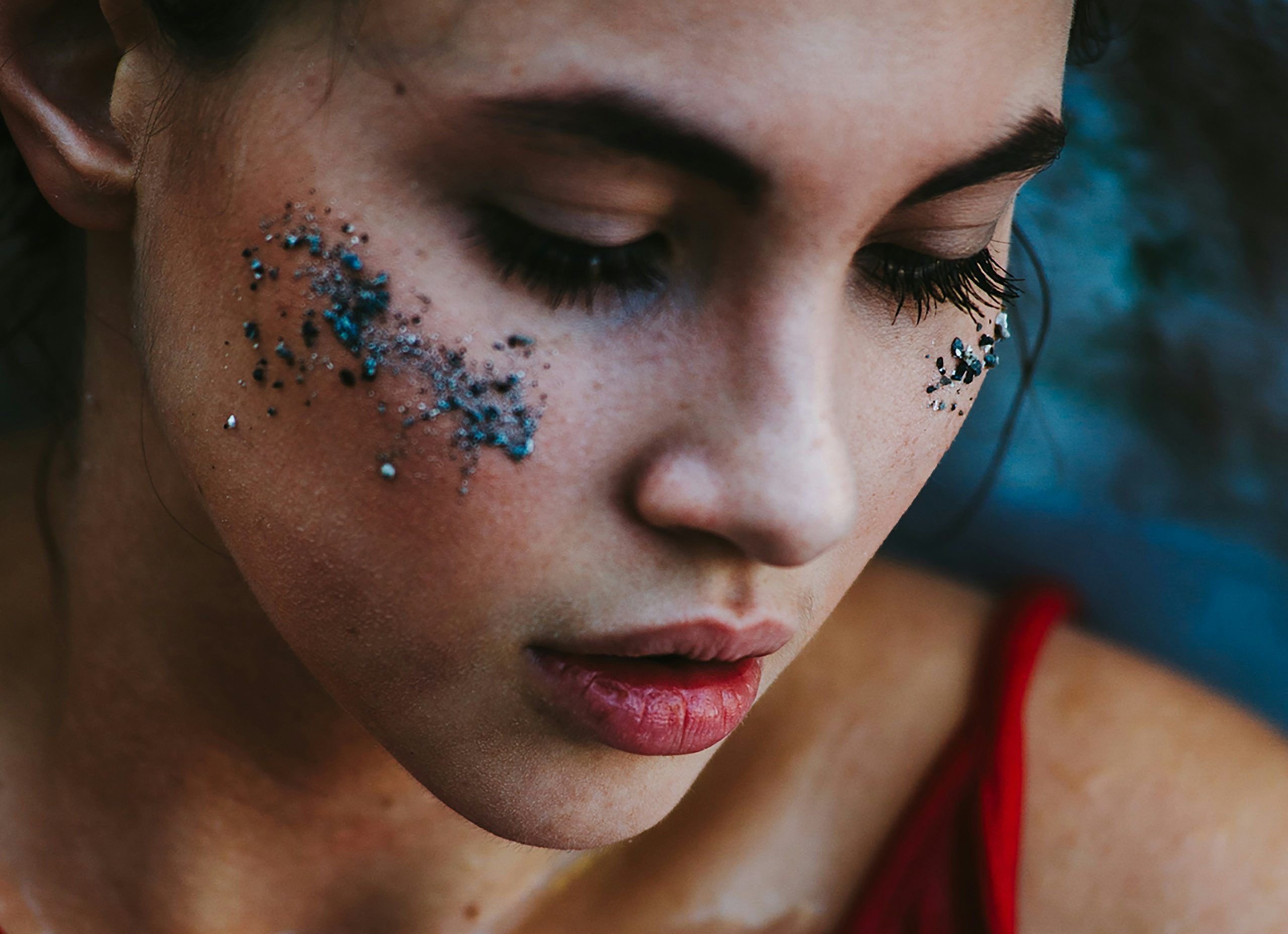After starring in Pablo Larrain’s Spencer and Maggie Gyllenhaal’s The Lost Daughter, British actor Jack Farthing ended 2021 with two critically acclaimed films. Now, he’s ready for what’s next.
After being known for playing George Warleggan in the much-loved series Poldark, one might think British actor Jack Farthing enjoys playing what some would describe as the “bad guy.” For Farthing, it’s not so much about whether a character is good or bad, but it is all about finding a character’s humanity amidst everything else. At the end of last year, audiences saw him portray one of the most talked-about men on the planet who has likely had the term “bad guy” thrown in his direction by a tabloid or two. For Farthing, whose portrayal of Prince Charles in Pablo Larraín’s Spencer was equal parts masterful and merciless, the film was not only a chance to work with some of the best of the best in Hollywood but an opportunity to better understand a man that will quite literally become King one day.
Approaching a character that is not only based on a real-life person but one that has had their every move documented by the press since they were born is a task that many would find daunting. With everything that has been spoken about by the media (and not spoken about by the family themselves), Farthing gave Charles something he likely never received before: a blank slate. Rather than subscribing to tabloid fodder, Farthing sought out the humanity of Larrain’s characterized-version of Charles, itching to better understand what he thinks of himself instead of what the world thinks of him and, in turn, found himself empathizing with him.
The desire to constantly seek out what makes each of his characters tick is likely why Farthing caught the eye of Maggie Gyllenhaal for her directorial debut, The Lost Daughter. His scenes as Joe exist entirely in flashbacks as he spars with Jessie Buckley’s Leda, a young mother who is feeling smothered and stifled by motherhood and who Joe is desperately trying to reign in. It’s a poignant, compelling story that, much like Spencer, showcases the lengths women go to in an attempt to please — whether it’s pleasing a family full of disdain or pleasing oneself. The thread connecting the two films is not lost on Farthing who revels in knowing that he is a part of projects that highlight the lived truths of women.
1883 Magazine’s editor Kelsey Barnes spoke with Jack Farthing about Spencer and The Lost Daughter, finding each character’s humanity, and more.
I want to begin our chat by discussing your first project — a taped performance of Romeo and Juliet at Shakespeare’s Globe. How would you say you’ve grown as an actor between then and now?
Wow, I hope I’ve changed in lots of ways. With every job you do, you’re growing in some way, in one direction or another. Sometimes it doesn’t always feel like the right direction… and other times it does. When I did Romeo and Juliet, it was such a wonderful start. I left drama school early to go and do it over a very special summer that ended up being nine months because we were able to do a tour of America as well. I was very green but eager and excited. I think if I saw that recording now I would struggle to watch it, which is exactly how I am with things I made last week. What has always been important to me is growing; I started in theatre and stage and did that for a couple of years and now I’m doing more film & TV work, two very different types of acting. Being able to evolve and stretch myself in different directions has always been most important.
I really believe you’re doing that, too. I feel like I’m always seeing you in different capacities. Obviously seeing Spencer was incredible and some might believe your depiction of Charles could be viewed as similar to your character on Poldark but I feel like there was such a distinct difference between the two. And you’ve even played John Lennon! You’ve been all over the place.
That’s lovely to hear you say. I want to push myself, I want to stretch. The imaginations of the people who invite me to do these things… I want them to feel and know that I have a broad range of interests as well as my own abilities as an actor. I’m most interested in doing something that seems radically different from what I just did. That is what fires me up. Of course, it needs to be of a certain quality, but I’m always up for a challenge. If it feels like something new that I’ve never done before, that’s invigorating to me.
I was reading a past interview you did around the release of season 5 of Poldark and they brought up you playing John Lennon in Cilla — you mentioned you wouldn’t mind playing someone a little less famous because the pressure was terrifying, which I thought was funny because now you’re playing someone like Prince Charles! Was that something you had to grapple with when choosing to step into the role?
Any worries or anxiety I had about portraying Charles—an incredibly famous, alive person—were just trumped by the idea and excitement of working with people like Kristen [Stewart], Pablo [Larraín], the cinematographer Claire Mathon, and the writer Steven Knight. When a gathering of those people exists… That’s particularly exciting. I knew they’d be creating something weirdly shaped and angular instead of just repeating the same stories that have been told in film before.
It’s a particular process when you’re playing someone real; you’re not just creating a person or finding something within you. Instead, it’s an external thing you’re looking at and comparing yourself to which can be difficult. It’s easy to feel like you’re getting it wrong a lot more than you might if the person is based in fiction. The film is liberated from the facts as well to an extent, too. It says at the beginning of the film that it’s “a fable from a true tragedy.”
I loved that line so much, I feel like it perfectly sets up the film.
Me too. I think it really helped people accept it as well. We’re not trying to tell them something that’s real that they missed and should know about. Instead, the film is inspired by an imagination that stems from reality. No one knows what happens behind those closed doors. It’s more like a poem or painting that’s inspired by something else rather than it being seen as a true documentary. Once you understand that, everyone—from us to the audience—begins to feel free. It brings a different spirit to the film when you free yourself of restrictions.

When I saw Spencer at TIFF, as soon as the Anne Boleyn stuff started happening there was a feeling amongst the audience of excitement; none of us knew where you guys were taking us. It speaks so much to Pablo as the director and Steven as the writer to open up Diana’s world as we know it and not just give it a retelling but instead give it a reimagining of the story we think we know.
I totally agree. In my view, it’s only worth making those things if they are coming from a different place. Obviously, we’ve all read and seen and heard a lot about this family, this woman, and this relationship. If you’re going to approach this subject, there needs to be a good reason to do it. You need to have an original perspective on it. This film definitely has that and it’s been clear to me from the start.
Spencer is centred around Diana and the experience she has over that weekend and, for the most part, there is not a scene in the movie without Diana’s perspective. The scenes with Charles are particularly powerful; they are gut-punching. It feels like there’s no air in the room at times.
Yeah, you’re there on her shoulder, you’re there in her head. It’s almost as if you’re her ally and everyone else is being viewed differently. The use of the rest of the family is used sparingly to show the distance Diana feels from them. Charles, obviously, is one of those people she feels incredibly distanced from.
When you received the script, did you feel that energy there?
Yeah, I did. For the audition, we did the scene over the snooker table and it is such a meaty piece of dialogue. We saw it as having a conversation about one thing but really they are talking about something else entirely, there is so much subtext there. If there was even half of what that scene conveys I would have been interested because there’s so much to work with as an actor. It’s intense, it’s condensed.
I’ve loved Kristen’s work for so long and I have so much respect for what she does as an actress. I knew she would be coming with a level of intensity and creativity, she is so imaginative. She wanted to play with it, try different things, and that’s what we did. With a scene like that, you have to trust the words you’re working with and for us, as the two actors who are up for messing around, and with a director who wants to push you as much as possible, you know it’s going to be interesting. I love the work I did as Charles because you get to see a range of who he is even with how little you see him. I don’t think he’s a villain; you see some heart, you see some regret, and you see sadness flickering through him. There’s a real person in there.
There’s that scene over dinner with the family just silently showing their disdain towards Diana with Charles quietly begging her to get herself together through gritted teeth. When you compare the Charles in that scene—reserved, pull together—and the Charles in the scene with the snooker table, it’s like night and day. It must’ve been fun for you to dive into these different facets of Charles as his emotional pendulum swings.
It was! It was easy to see his perspective and the sense that he just wants to play along for the sake of saving face with his family. He desperately wants her to do that, which is essentially what he’s been doing for so long. She’s in a place where she doesn’t want to act and be silent, she wants to be herself. He’s under such a huge amount of pressure and you can feel the weight of that in those scenes as he tries to control the uncontrollable—both Diana and his future which was set up for him since he was born.

I know there’s a lot of material about the Royals and Charles, but was there anything in particular that you read to flesh out your version of Charles? Or did you prefer to avoid engaging with stuff so it didn’t taint the script?
I did, actually! I went very out of my way to do it because I knew little about him and the rest of them. They’ve somewhat existed outside of my vision for my whole life and I never bothered to really look at them. I read three different biographies that had varying degrees of support and sympathy for him. I listened to a huge amount of his interviews and I watched a lot of footage and after watching so much, I learned I wanted to find his own perspective on himself as opposed to other people’s perspective on him because the range is too broad. I wanted to know how he felt about himself so I could strengthen my own feelings going into filming.
[Laughs] In a way, I ended up having quite a biased perspective on him now because I’m kind of his biggest ally. I have to believe and support everything he does in the film so it was interesting and enlightening to learn to understand him better. I deepened my empathy for someone having not known much about them prior. Although I’ve never met him; I say all of this based on what I’ve read and seen.
I appreciate that because despite not being cast in the best light, I do think there’s a degree of humanity in all of us. As an actor, it’s almost as if it’s your job to find that even if they are the “bad” guy. It’s nice to hear you approached the character of Charles with a blank slate.
I wouldn’t have been doing my craft right if I based him on biased things. I feel like that would’ve been me getting in the way of not only the film but myself.
You’re also starring in Maggie Gyllenhaal’s directorial debut The Lost Daughter based on the novel. You play Joe opposite Jessie Buckley who plays a younger version of Leda and the scenes between the two of you are just incredible. You have two projects out that have female trauma at the centre.
Yeah, I adore Maggie Gyllenhaal as an actor and was so thrilled by the idea of working with her as a director for the first time on her first film. I love the book it’s adapted from and when I received the script I felt the same. There was already an insane collection of actors that were already attached and I knew all my stuff would be with the extraordinary Jessie Buckley, who I knew and loved already but had never worked with. It was a real delight to shoot that in the autumn of last year. It was the first thing I did after a few months of nothing after the world stopped. It felt like the most blissful, fulfilling creative bubble. It was nourishing to be in that environment.
It’s often in the process of talking about projects you realize the connection between them and there are a lot more connections between Spencer and The Lost Daughter than I saw at the time. They are such different worlds and feel so different, both as an actor and as an audience member, but looking back on them there are a lot of overlaps in the themes that are prominent throughout both.
Your next project is BBC’s Chloe which is a psychological thriller series that looks at our attitudes towards everything from identity to obsession to how we use social media. As someone who is not on social media, your life must be very peaceful [laughs].
Yes! [Laughs] I have a very different perspective on it. I am interested in it as a phenomenon; it’s such a massive part of our lives now whether you are on it or not. The power of it is undeniable. I want to understand why we are so obsessed with it. Why do some feel the need to scroll on Twitter at 4 am?
Right! What was it like exploring those themes, especially after coming from two projects like Spencer and The Lost Daughter?
What Alice Seabright wrote was a really insightful, interesting, and pretty terrifying script. It’s about a lot of things, but at the heart of it, it’s about the discrepancy between what we present online and who we are and how we’re feeling. It’s about getting to the truth beyond social media and image and seeing how many lies we tell to other people and to ourselves. It’s a scary piece of writing. Erin Doherty, who plays the lead, is spectacular. People are going to just adore her in it. Personally, it was a nice opportunity to do something again that felt really different.
Lastly, as we start 2022 if you could manifest something for yourself this year what would it be?
Oh, my word. I am currently trying to manifest a script as beautiful as those two films. The joy of working on those is that they are coming out around the same time. It feels like I’m taking stock of how lucky I’ve been so far and it’s a very special moment. I’m not going to leap; I’m going to wait until something as beautiful as those two projects come my way. I guess I’m going to manifest another Maggie or Pablo to say “Hey Jack, are you ready for this?” I feel like I am.
Spencer and The Lost Daughter are both out now.
Interview by Kelsey Barnes
Photography by Hanako Footman


